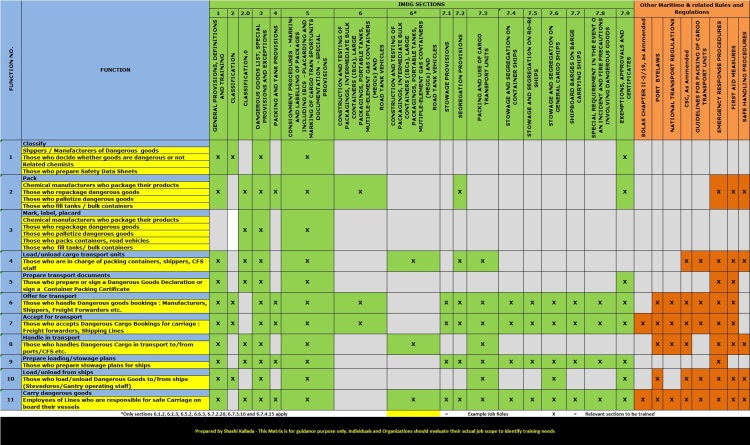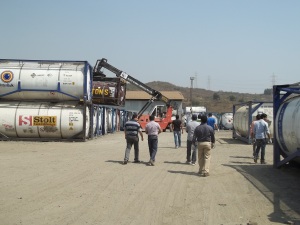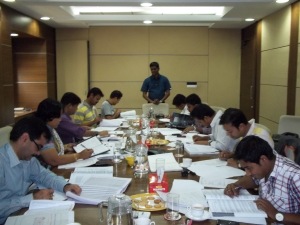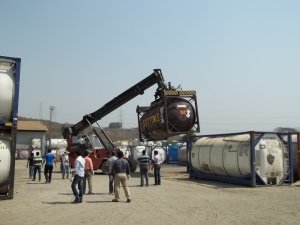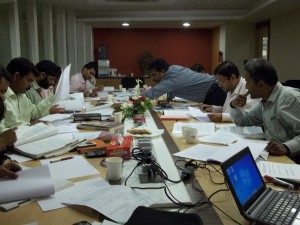IMDG Code, the mandatory instrument under SOLAS and MARPOL conventions of International Maritime Organisation for carriage of dangerous goods in packaged form by sea, undergoes biennial revisions. The latest amendment is 36th amendment published in 2012. With amendment number and year of publication this edition is called as IMDG Code 36-12.
IMDG Code 36-12 came into voluntary usage from 1st January 2013 and will come into force from 1st January 2014. Click here to see IMDG Code Amendment cycle 2010-2019.
IMDG Code 36th amendment (36-12) brought out many revisions and additions including total reshuffling of provisions concerning transport operations in chapter 7.x. Click here to see changes to IMDG Code 36-12 or search ’36-12′ in search box on top right hand side of this page.
October 2014 new IMDG Code will be published which will come into voluntary and mandatory application from 1st Jan 2015 & 1st Jan 2016 respectively. This edition will be called as 37-14.
Time flies by before we realize seasons changing. Similarly regulations for transport of dangerous goods by sea continuously gets revised and modified. If we do not keep up with regulatory changes we will fall short on compliance which may pose risk to personnel and property or environment with deadly consequences.
IMDG Code 37th amendment (37-14) is about to bring out revolutionary revisions in stowage and segregation requirements by replacing stowage segregation rules by codes and various other changes including but not limited to tank hazard communications, marine pollutant communications, vehicle shipments clarifications and exemptions etc.
Training is the first step to Compliance and Safety. Timeline for training for dangerous goods by sea is as below;
- From 1st January 2008 – Recommendatory
- From 1st January 2010 – Mandatory
Since training became mandatory in 35th amendment of IMDG Code (34-08) four years have passed. There are still a great lot of personnel in shore side who are either not trained or not undertaken mandatory refresher training.
It is the organization’s responsibility to ensure all personnel are trained commensurate with their responsibilities and timely refresher training is provided. Training can be provided either as classroom training, in house training or eLearning. The requirement of IMDG Code is ‘you SHALL be trained to handle dangerous goods’.
Click here to see details of classroom training and ELearning.
Be safe and ensure safety!
Related articles
- Time to Change IMDG Code (shashikallada.com)
- IMO Assembly Set to Adopt Mandatory Audit Scheme (worldmaritimenews.com)
